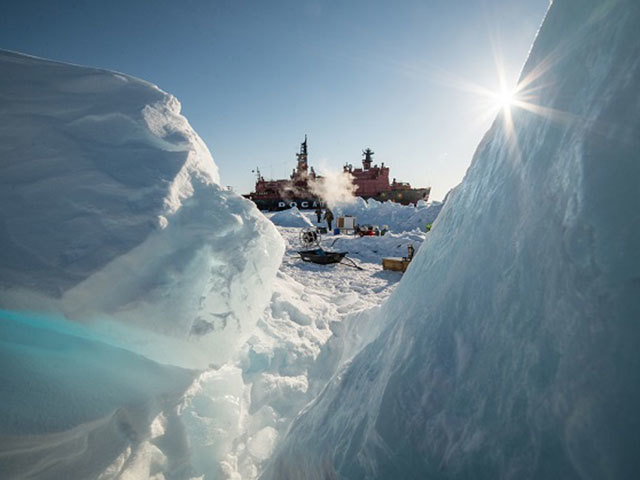
Russian state oil producer Rosneft will be forced to postpone drilling a second well in the Kara Sea for at least two more years, three sources told Reuters, as a result of Western sanctions over the Ukraine crisis.
The delay will be a blow to Rosneft, which is key to President Vladimir Putin’s goal of lifting output and securing Russia’s energy dominance by exploring the Arctic, where Moscow is thought to have some of the world’s most plentiful oil resources.
Rosneft, the world’s top listed oil firm by output, drilled a first exploration well known as Universitetskaya-1 last year in the Kara Sea, which is part of the Arctic Ocean, with the help of U.S. partner ExxonMobil which provided the rig.
Rosneft chief executive Igor Sechin, a Putin ally, called the field discovered there Pobeda (Victory) but the project is now on hold because Exxon had to suspend cooperation under the sanctions.
Rosneft had already pushed back the start of drilling of a second well from 2015 for lack of a rig.
Sources familiar with Rosneft’s plans say the work in the Kara Sea will now have to be pushed even further back because sanctions have cut off access to specialised equipment as well as Western sources of funding.
“The current economic and external conditions are such that it is more likely that there will not even be any drilling in 2017,” said one of the sources.
Rosneft said last September the first well drilled with Exxon had discovered light oil – liquid petroleum with a low density – and that the field could hold 130 million tonnes of technically recoverable oil reserves.
Exploration in the Kara Sea is difficult at the best of times because of the severe weather conditions which make drilling possible for only about two months a year, but it is much more complicated without specialised Western equipment.
“It’s a very difficult situation for Russian offshore (drilling) now: there is no partner or machinery. Given Rosneft’s debt and low oil prices, (resuming) drilling hits the company in its pocket,” another source said.
“I will be surprised if it could resume (even) in two years.”
Debts Amid Sanctions
In a written reply to a Reuters request for comment, Rosneft said: “The company’s working plans for 2016-2017 assume unconditional implementation of all works set by licenses.”
It gave no more details and did not reply directly to a question asking whether there would be a “drilling window” for 2016 and 2017 to resume operations in the Kara Sea.
Sanctions and lower global oil prices have not affected Russian oil production, unchanged in May at a post-Soviet high of 10.71 million barrels per day.
But the lower prices discourage companies form embarking on costly projects and Energy Minister Alexander Novak acknowledged on Wednesday there had been an impact from the sanctions.
“Unfortunately, now the situation with Arctic offshore drilling has become a bit more complicated because of sanctions,” Novak told parliament.
Delays are also expected, because of sanctions, in the development of Rosneft’s liquefied natural gas (LNG) plant on the Pacific island of Sakhalin.
With production areas such as Western Siberia becoming depleted, Russia hopes to discover and develop new fields and needs new technology to unlock the potential of the Arctic offshore fields and shale oil in the Bazhenov formation in Western Siberia.
Rosneft also has large debts to deal with. It had amassed 2.47 trillion roubles ($45.02 billion) in net debt by the end of 2014, largely due to a $55-billion takeover of BP’s Russian joint venture TNK-BP in 2013, and faces a total of $23.5 billion in debt repayments in 2015.
Rosneft has applied for funds from the National Wealth Fund, Russia’s sovereign wealth fund, to support some of its projects but has not yet won approval and faces opposition from some quarters because of the country’s economic downturn.
The first source familiar with Rosneft’s plans said the company would not press ahead in the Arctic until sanctions are lifted and ExxonMobil can resume operations. ($1 = 54.8705 roubles)